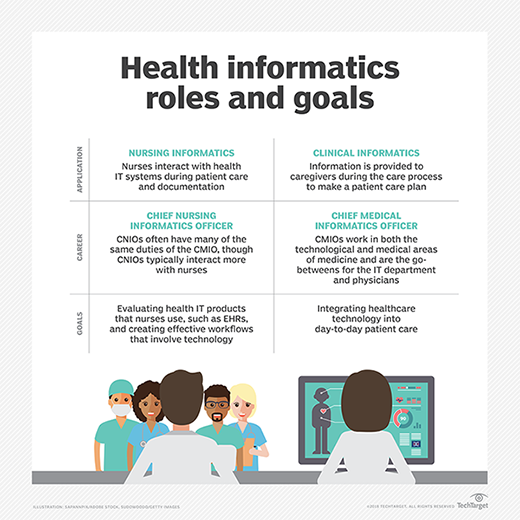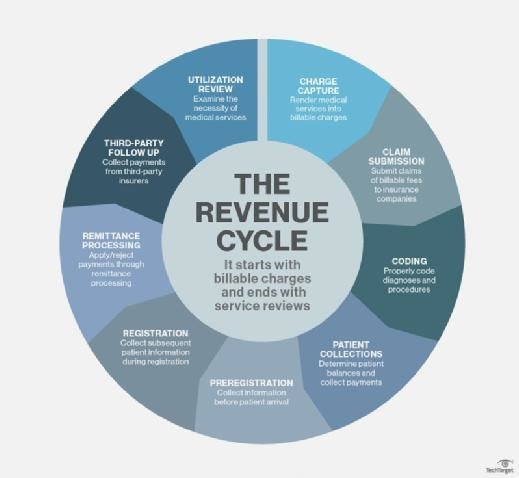What is the American Health Information Management Association (AHIMA)?
The American Health Information Management Association (AHIMA) is a leading professional organization focused on advancing the practice and standards of health information management (HIM).
Through education, certification, advocacy, and professional development, AHIMA supports the clinical and business uses of health data in electronic and paper-based formats. Its work is central to ensuring the quality, security, and accessibility of health information in today's complex healthcare environment.
AHIMA serves as a hub for health information professionals worldwide, providing tools and resources that help them manage data responsibly and effectively. The association is a strong advocate for health informatics, data governance, privacy and security, coding, and new technologies like AI.

AHIMA also shapes federal policy around healthcare data, contributing to regulations and guidelines that affect how patient information is handled, stored and shared.
History of AHIMA
AHIMA's roots date to 1928, when it was founded by the American College of Surgeons as the Association of Record Librarians of North America. Its mission was to elevate the standards of clinical record keeping in hospitals and healthcare facilities.
As the field evolved, so did the organization's name and scope. In 1938, it became the American Association of Medical Record Librarians, reflecting the growing professional identity of those managing patient records.
By 1970, the organization had further expanded its influence and became the American Medical Record Association. The AHIMA name surfaced in 1991, reflecting its comprehensive role in health information across all care sectors.
This nearly century-long evolution mirrors the transformation of medical records from handwritten charts stored in filing cabinets to sophisticated, digitized data ecosystems. Today, AHIMA continues to lead the way in ensuring that health information professionals are prepared to meet the demands of a data-driven healthcare system.
Why AHIMA matters
With a strong commitment to advance accurate, secure, ethical health information management, AHIMA prepares professionals to manage health data across the care continuum. Whether through traditional degrees and certifications or agile microcredentials and AI resources, AHIMA ensures that its members stay current, competent and confident in their roles.
AHIMA membership
AHIMA currently represents more than 67,000 health information professionals around the world, with over 100,000 active credentials and 52 component state associations supporting local and regional engagement. Membership is open to students, recent graduates, seasoned professionals and global practitioners.
AHIMA offers several membership tiers, including standard and premier professional memberships, student and new graduate options, global membership for those outside the United States, and emeritus status for retired members. Group memberships are also available for academic programs and organizations.
Premier members receive additional benefits such as bonus continuing education units (CEUs), exclusive resources, and discounts on certification renewals. Membership provides access to a vast professional network, continuing education, career development resources, and leadership opportunities in both local and national chapters.
AHIMA education and certification
Education is AHIMA's core offering. The association provides robust learning pathways for health information professionals through virtual labs, on-demand webinars, certification prep courses and instructor-led training.
These educational programs cover key topics such as medical coding, privacy and security, data analytics, revenue cycle management and clinical documentation integrity.
AHIMA's Virtual Lab is particularly valuable for students and new professionals, offering hands-on experience with software systems like electronic health records and the master patient index.
AHIMA also offers a suite of respected, nationally recognized certifications. Health information management credentials include the Registered Health Information Administrator (RHIA), which requires a bachelor's degree, and the Registered Health Information Technician (RHIT), which requires an associate degree.
For those specializing in medical coding, AHIMA offers the Certified Coding Associate (CCA), Certified Coding Specialist (CCS) and Certified Coding Specialist-Physician-based (CCS‑P). Additional specialty certifications include the Certified Health Data Analyst (CHDA), Certified in Healthcare Privacy and Security (CHPS) and Certified Documentation Improvement Practitioner (CDIP).
In recent years, AHIMA has expanded its credentialing options to include microcredentials. Launched in 2023, these smaller, stackable credentials allow professionals to gain recognition in focused skill areas such as release of information, health data literacy, risk adjustment coding, and auditing.
Microcredentials are ideal for professionals seeking targeted upskilling in less time than traditional certification paths require.

AHIMA continuing education and recertification
To maintain certification, AHIMA credential holders must earn CEUs within a specified renewal period.
As of January 1, 2025, AHIMA requires that at least 40% of required CEUs be earned through AHIMA itself or its component associations. The remaining CEUs can come from AHIMA-approved external providers. This change aims to ensure consistency, quality, and alignment with evolving industry standards.
Recertification fees are structured by membership status. For AHIMA members, the base fee is $100 per credential with an additional $20 per extra credential. For non-members, the base fee is $218 per credential, with $50 for each additional.
CEU tracking and submission are managed through the MyAHIMA platform, which also houses transcripts, digital badges, and professional development records.
AHIMA foundation
The AHIMA Foundation, established in 1962, is the association's charitable and educational arm. Created to offer loans and books to HIM students, the foundation has since expanded its mission to include scholarships, research funding and workforce development initiatives.
The foundation plays a critical role in ensuring access to education and supporting innovation in the profession. Each year, it awards scholarships to students pursuing degrees in health information management and administration, with a focus on promoting diversity, equity, and inclusion in the field.
AHIMA Code of Ethics
AHIMA's Code of Ethics guides the professional conduct of its members and credential holders. It emphasizes the duty to safeguard health information, ensure data accuracy and confidentiality, and act with honesty and integrity.
The code also encourages members to support and mentor new professionals and students, fostering a culture of collaboration and lifelong learning. Ethical behavior is viewed as a personal obligation and a vital component in maintaining public trust in healthcare data systems.
Association for Healthcare Documentation Integrity (AHDI)
Closely aligned with AHIMA is the Association for Healthcare Documentation Integrity (AHDI), founded in 1978. Originally formed to advocate for the medical transcription profession, AHDI has expanded its mission to promote excellence in healthcare documentation.
Like AHIMA, AHDI supports education, certification, and best practices to ensure the quality and accuracy of clinical documentation. While the two organizations serve different niches in the health information landscape, they share a commitment to advancing professional standards and patient care.
AHIMA advocacy and policy
Beyond education and credentialing, AHIMA is an influential voice in healthcare policy. The association regularly engages with federal agencies, provides feedback on proposed regulations, and advocates for legislation that affects health data governance.
Key policy areas include privacy and security rules under the Health Insurance Portability and Accountability Act (HIPAA), the International Classification of Diseases, 10th Revision (ICD‑10), Current Procedural Terminology (CPT) coding updates from CMS, telehealth documentation guidelines, and AI oversight frameworks. AHIMA also participates in multistakeholder coalitions, such as the Health IT End-Users Alliance, working to ensure that frontline data professionals can influence the future of health information management.
AHIMA AI and innovation
Recognizing the transformative role of AI in healthcare, AHIMA launched its AI Resource Hub in 2024.
This initiative offers practical tools, webinars, white papers, and model frameworks to help organizations implement and govern AI systems responsibly, particularly in non-clinical applications such as data classification, fraud detection, and revenue cycle automation.
AHIMA's AI governance resources emphasize transparency, risk management and workforce readiness, equipping members to lead in that rapidly evolving space.
A 2023 AHIMA survey found that over half of U.S. healthcare organizations expected to expand their use of AI and machine learning in the next year. In response, AHIMA has positioned itself at the forefront of policy discussions around ethical AI use, advocating for standards that ensure fairness, accountability, and privacy in automated decision-making systems.
AHIMA publications and research
AHIMA publishes a variety of resources to keep its members informed and engaged. The Journal of AHIMA provides industry news, analysis, and thought leadership on topics ranging from compliance to data science.
In 2025, the organization rebranded its peer-reviewed publication, Perspectives in Health Information Management to Advances in Health Information Science and Practice (AHISP) to better reflect its emphasis on research, innovation and evidence-based practice.
AHIMA's daily SmartBrief newsletter aggregates important healthcare news, regulatory updates and professional opportunities.
As data analytics becomes essential for healthcare organizations, stakeholders need to understand the basic vocabulary related to the process. Explore common data analytics terms in healthcare.






